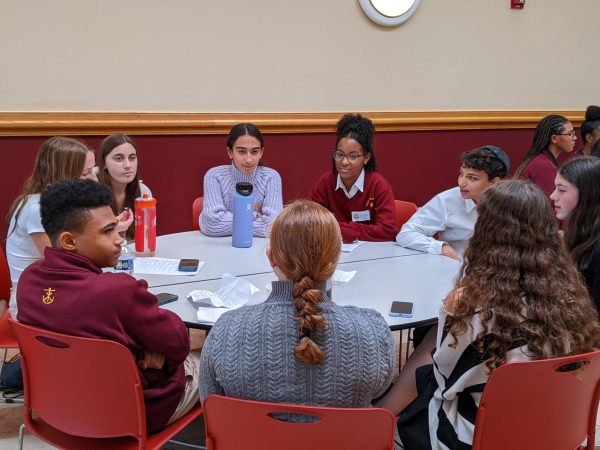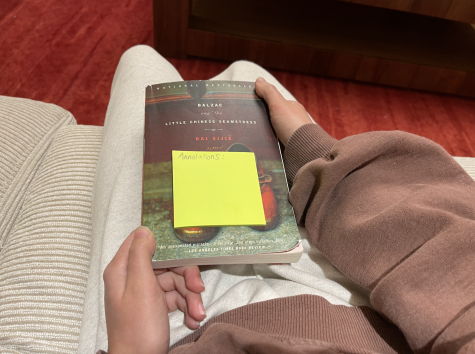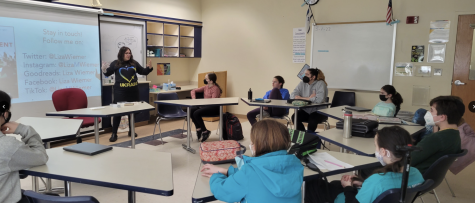Pro
March 17, 2021
When Twitter blocked former President Donald Trump in early January, millions of Americans breathed a sigh of relief. For many, this decision felt like a fitting ending to four years of irresponsible leadership and blatant lies.
While pundits and politicians raised the question of whether our individual liberties were being targeted, I was initially unconcerned. It seemed clear that unless individuals with millions of followers used their influence to incite domestic terrorism, average American Twitter users had nothing to fear.
Yet after the news broke, it wasn’t just the expected Trump loyalists who condemned Twitter. German Chancellor Angela Merkel, Mexican President Andres Manuel Lopez Obrador, Australian Prime Minister Michael McCormack and Russian opposition leader Alexei Navalny all voiced their adamant disagreement.
These leaders aren’t necessarily worried about the implications of Twitter’s decision in America but are instead concerned about the implications of this decision on the rest of the world. In countries like China, Russia and Iran, citizens are still trying to enact the kind of basic individual liberties that our country achieved back in 1776. For these countries’ corrupt leaders, Twitter’s Trump account ban could be used to normalize and justify their anti-democratic actions.
The banning of Trump’s Twitter account is also problematic because of the lack of structure and transparency behind Twitter’s decision-making process. In a democracy, respected individuals should be given the right to assess whether one’s speech crosses the line from harmless to harmful.
For example, Facebook has created a “Supreme Court” of 20 respected and knowledgeable individuals to oversee free speech decisions. But Twitter has not been as proactive, as its decision came from the billionaire CEO and his top executives.
Instead of using a reckless and spontaneous decision-making system, Twitter should address our world’s increasingly virtual communication by creating new and democratic decision-making organizations. Then the company will garner more trust when assessing individuals who truly don’t deserve any freedom of expression, like ISIS recruiters or genociding dictators.
For these reasons, one of the most influential activists of our time, Russian Alexei Navalny, made it clear that he viewed Twitter’s move as dangerous. Navalny is currently in jail for, among other things, violating his probation terms after being poisoned by dictator Vladimir Putin and unconsciously evacuated to Germany. In other words, Navalny is in jail for failing to succumb to an assassination attempt.
The fact that someone currently rotting in prison for standing up to corruption is so worried about this decision’s implications in his country further suggests that Twitter and liberals should re-evaluate their stance.
Instead of making a decision with negative ramifications for the rest of the world without any decision-making process in place, Twitter should go about this subject in a more nuanced manner. The best way to do this would be to evaluate every tweet made by Trump and other radical individuals on a tweet-by-tweet basis.
If a tweet in any way encourages violence or pushes a dangerous and false narrative, Twitter and similar social media companies should delete it immediately. But by allowing Trump to retain the freedom to tweet about his “very good brain” and other unimportant and harmless subjects, America would be able to project its unwavering stance on freedom of expression to the rest of the world.
The unimaginable power and influence of social media could change our society for the better if it leads to greater participation in democracy, or change our society for the worse if manipulative and addictive algorithms continue to polarize and radicalize our society. Either way, we need to acknowledge how crucial virtual freedom of speech is by creating stable and transparent decision-making systems when assessing harmful individuals, like the former president and their tweets.
Social media companies like Twitter must proactively address the question of free speech on the internet to take into account the needs of all 195 countries. We must project an unwavering commitment to free speech and democratic values to these countries’ citizens, starting with granting Trump his Twitter account back while monitoring it minute-by-minute.
No one believes there is a perfect solution to the future of free speech, which is why we can’t resort to the quick-fix solution of a permanent ban. Instead, let’s engage in a conversation, share innovative solutions, and eventually determine the role of our 1st amendment on social media platforms across the world.















